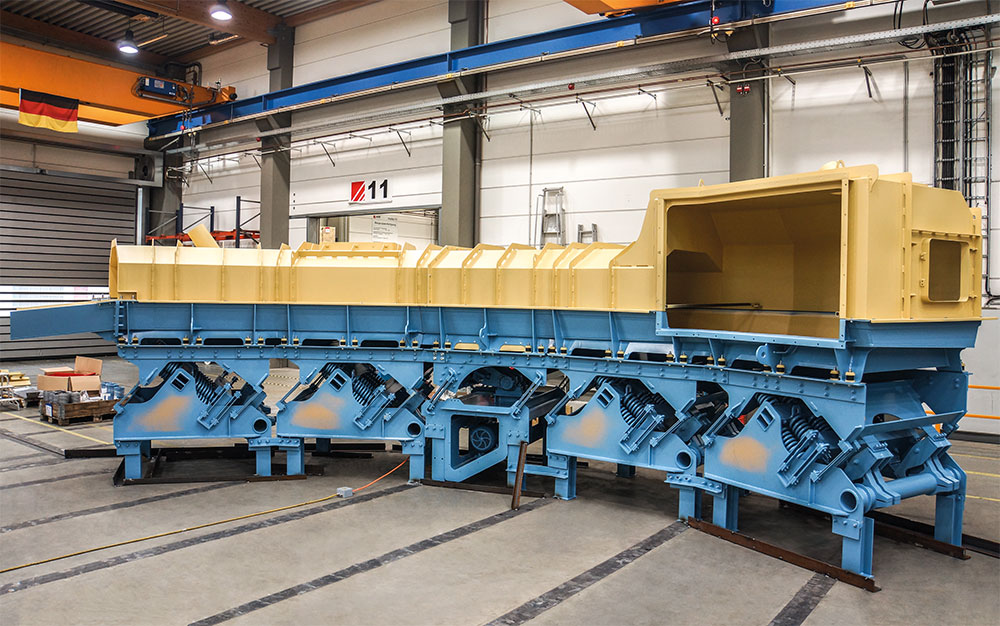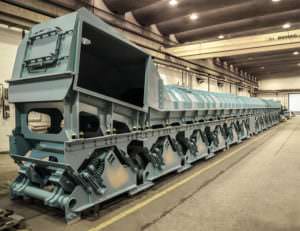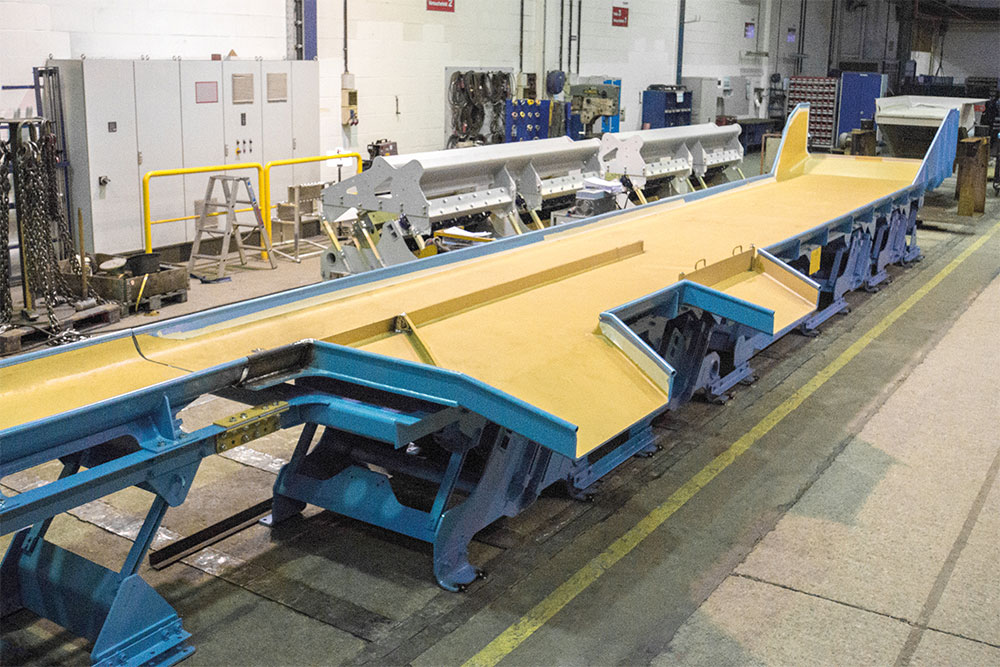FOUNDRY & STEEL INDUSTRY
Smart foundry in Turkey equipped with JOEST machines

JOEST delivered the complete vibrating machines to Trakya Dokum’s new smart foundry in Turkey. The plant is designed for the production of various automotive cast iron parts in a vertical flaskless molding line.
The molding line is a DISA 270A; mold dimensions 950 mm x 700 mm, operated at 400 moulds/hour, 150 t/h sand throughput in average, 12 t/h liquid metal in average with inductotherm dual track melting furnace.
After the SBC (Synchronized Belt Conveyor), the molds dump on a reversible conveyor and pass on a shakeout with adjustable frequency and adjustable vibrating angle directly. This soft handling track is for fragile parts which cannot be processed in a rotating drum.
The main track directly connects end of molding line SBC, shotblast machine, grinding area and melting shop in a straight way. After the SBC, the molds dump on a reversible conveyor and pass to a 25 m inclined linear sand/casting conveyor and a 90° curve which follows this conveyor. Conveying the parts on such a long distance together with the sand allows heat dissipation from the castings to the surrounding sand mass flow.
This conveyor arrangement is followed by a rotating drum without any grids and a shakeout with adjustable frequency and adjustable vibrating angle in order to clean the casting surface from sand, reducing sand lump size, and finally draining the dissolved sand through the grids.
After the shakeout, the castings pass on a primary sorting conveyor for removing the downsprue, runner and riser before they enter the DISA CT shotblast machine.
The shotblast machine is followed by a secondary sorting conveyor. Castings are separated from return scrap; the castings are conveyed to the grinding area and the return scrap is processed in a hydraulic V-jaw breaker in order to reduce the size. After this machine, the return scrap is conveyed directly back to the charging plant.


Weitere Beiträge
As part of the JOEST group, MOGENSEN has been a trusted provider of high-performance screening and sorting technologies for many years. The new website now showcases this expertise more clearly and with a modern touch.
On International Women’s Day, we celebrated the great women in our company who have made a significant contribution every day with their commitment, expertise and passion. Their efforts have been a driving force behind our success and an inspiration to us all.
JOEST South Africa was commissioned to manufacture and supply replacement vibrating feeders for a critical power generation facility. The new units are designed to replace equipment that had been in operation for over 20 years, ensuring the continued reliability and efficiency of the plant.
MOGENSEN joins China’s food security project as an official supplier, supporting the nation’s plans to strengthen domestic grain production capabilities. The appointment by COFCO, China’s largest state-owned agricultural company, includes the deployment of multiple precision screening systems for processing rice, wheat and soybeans, among other grains. This long-term initiative is in line with China’s new food security law, which went into effect on June 1, 2024.





